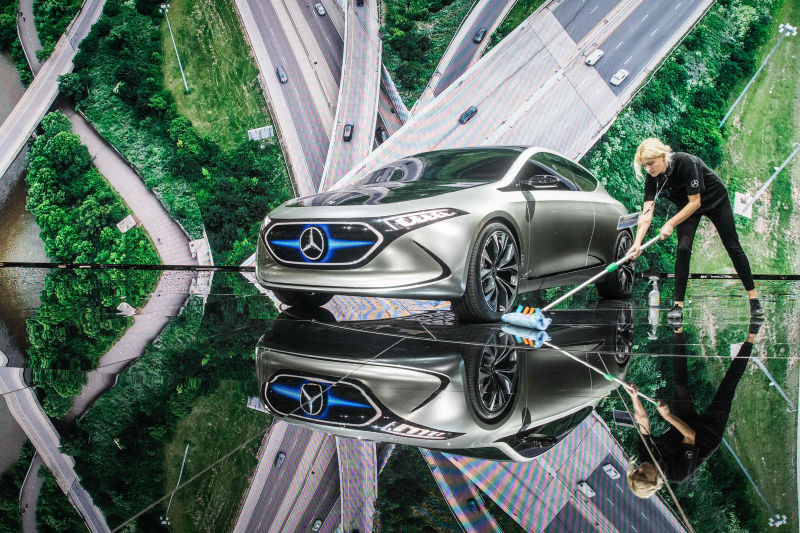Mercedes-Benz said it would not cut spending on future electric vehicles (EVs) even as it copes with supply-chain cost pressures exacerbated by the Russian invasion of Ukraine, as it announced a new Japanese battery supply for its US-made cars.
Chief executive Ola Kaellenius reaffirmed the company’s 2022 financial outlook remained in place despite supplier issues. “We always protect the investment into future technology and future products,” Kaellenius said.
“That is the seed which we will harvest – not even in the [pandemic] year of 2020 did we cut back on [research and development] for crucial projects.”
Mercedes-Benz is working with suppliers in Ukraine whose operations have been disrupted, Kallenius added, but it was “too early to tell what the wider ramifications will be.”
The company, formerly known as Daimler, said Japanese battery maker Envision AESC would supply battery modules for US-made EVs by the middle of the decade.
Rocketing gasoline prices since Russia’s invasion of Ukraine has amplified the challenges for established automakers that still rely on fossil fuel-powered vehicles for profits.
And soaring prices for materials used in EV batteries like nickel, heavily mined in Russia, have also hurt the industry.
Accelerating the Shift
Kaellenius is trying to accelerate the shift from a combustion technology company to one making products that do not emit carbon and rely on software and computing power.
Mercedes-Benz and other established automakers trail Tesla in EV sales and in developing computer and software systems to compete with the US rival’s stream of new features and updates.
Daimler Truck split from Mercedes-Benz in December and Kaellenius said on Tuesday he saw no reason to further separate EVs from the combustion-engine operations.
Some investors have pushed established carmakers to create pure EV units.
“There is only one Mercedes-Benz and that one company sooner than many people think will be an all-electric company,” Kaellenius said in an interview.
Mercedes-Benz, which plans to produce EV batteries in Europe, North America and Asia, aims to have eight cell factories with partners around the world with capacity to produce 200 gigawatt hours a year by the end of the decade.
- Reuters, with additional editing by George Russell
READ MORE:
Daimler’s Mercedes-Benz Said To Build EV In China From 2024
Hyundai to build EVs in US as Daimler advances petrol phase-out
China Remains Biggest Market for German Cars – Xinhua
























